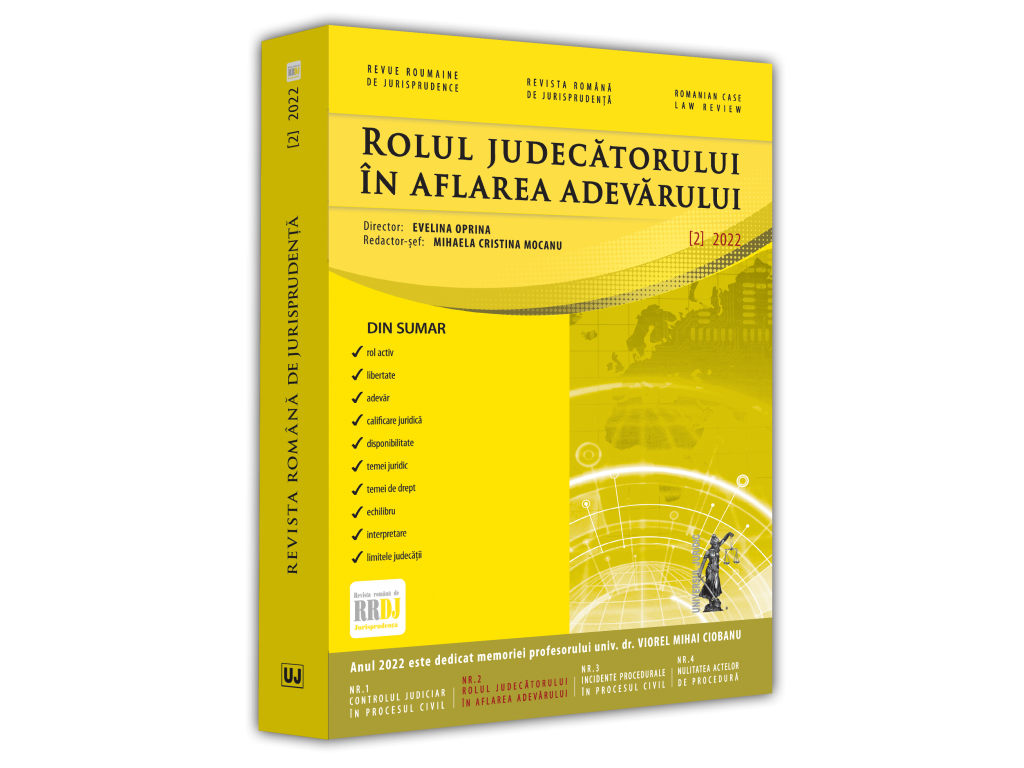Exceptions to the rules on devolution on appeal
DEZBATERI
Abstract
The analysis of the rules of law underlying the grounds of appeal highlights the link between the legal relationship of substantive law and the legal relationship of contentious law through the devolution of this remedy. Aspects of the substantive legal relationship with regard to which the plaintiff is 'satisfied' do not form the subject-matter of the legal relationship in dispute. On the other hand, it is undeniable that in appeal, according to the Code of Civil Procedure, the court may resolve the case beyond what was tried at first instance, i.e. the 'dissatisfaction' of the plaintiff, and even beyond what was appealed, i.e. the 'dissatisfaction' of the appellant. The provisions on the hearing of appeals help us to better understand what is on trial - both at first instance and on appeal - and what the court gets to decide. The plaintiff does not bring a claim before the court merely on the basis of a legal relationship of substantive law, but rather on the basis of an often complex legal situation. This legal situation before the court corresponds either to several closely linked legal relationships, or to a complex legal relationship in terms of one of its elements (subjects, object), or even to a legal relationship that evolves or even evolves into a completely different legal relationship (as in the case of novation).
Keywords: legal relationship of substantive law, legal relationship in dispute, legal situation at issue, grounds, appeal, remand, inadmissibility, entirely new claims on appeal, damages arising after the judgment of the first instance, specification of the claims addressed to the first instance, implicit limits of the appeal, solutions dependent on the part of the judgment under appeal, limitation of the appeal to certain solutions in the operative part, tendency to set aside the entire judgment of the first instance, indivisible subject-matter of the dispute, grounds raised ex officio by the court of appeal, (non-)worsening of the situation in the appeal itself, (non-)reasoning of the appeal, appeal exclusively against the recitals of the judgment of the first instance








